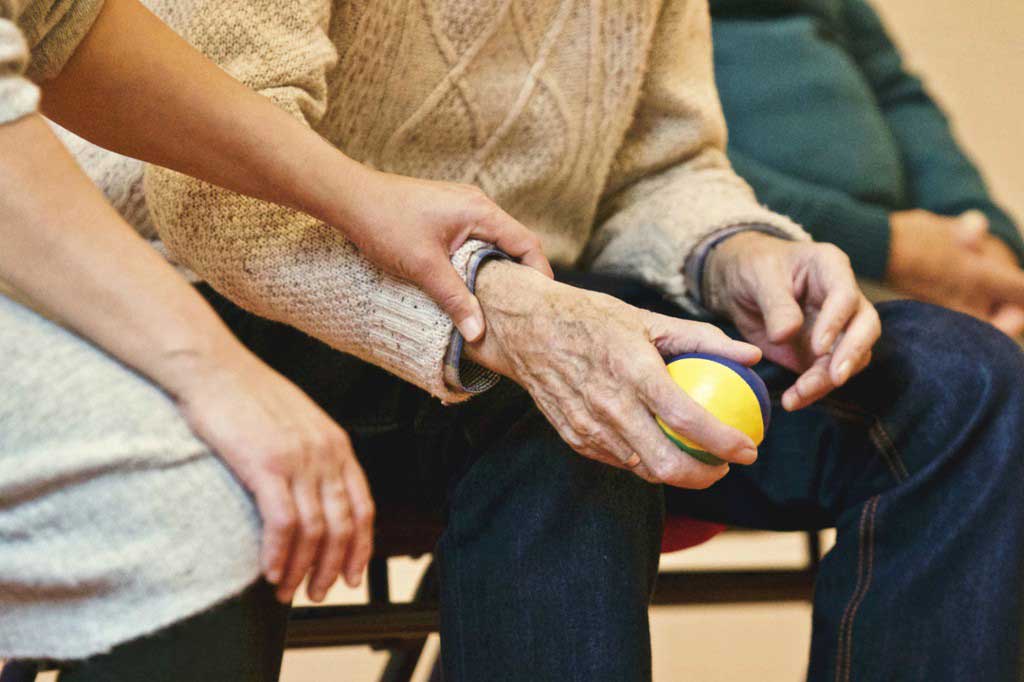Elderly people get boost from blood pressure pill
Older people
Behind the headlines article on news coverage of a study into the benefits of elderly people taking ACE inhibitors.
“Scientists have discovered that a common blood pressure pill appears to reverse some effects of ageing,” said the Daily Mail today.
According to the BBC’s coverage, the study found that elderly volunteers showed a marked improvement in their levels of activity and quality of life when asked to take a drug regularly prescribed for heart conditions.
This well-conducted trial was relatively short, running for only 20 weeks and so raises the question of whether the observed improvements in exercise capacity can be maintained over time. Exactly how these drugs had this effect is unclear, but this study highlights the need for additional research in this area.
Where did the story come from?
Dr Deepa Sumukadas and colleagues from the Section of Ageing and Health at the University of Dundee carried out this research. The study was funded by the Scottish Department of Health with the drug supplied free by the pharmaceutical company. The study was published in the peer-reviewed medical journal Canadian Medical Association Journal.
What kind of scientific study was this?
This was a randomised, placebo controlled trial. The researchers recruited frail patients who were 65 years or older, who had existing mobility problems or difficulties performing everyday activities, and randomly assigned them to two groups.
One group was given Perindopril, a compound in the group of drugs known as ACE-inhibitors which are usually used to control blood pressure or to treat heart failure. The other group was given a placebo, dummy pill.
A variety of measures was used to test both groups’ levels of fitness and physical function. These included a walking test and a two part, self-administered general questionnaire asking about their quality of life. This was administered during an interview with the researcher at the beginning and end of the trial.
What were the results of the study?
Of the 2,551 patients assessed for the study, a large number (2421) were excluded for a number of reasons. They were either already taking an ACE inhibitor or similar drug, were already too frail (wheelchair bound) or had heart failure or low blood pressure.
The 130 candidates who were left were separated into two groups, an experimental group who were given Perindopril, and a control group who were given a placebo. Only 95 of these people completed the 20-week follow-up.
When the 45 people who completed the trial in the experimental group were compared to the 50 who completed the trial in the placebo group, significant differences were noted at 20 weeks.
The group treated with Perindopril could walk on average about 33 yards (31 metres) further in six minutes than the control group. The distance a person can walk in six minutes is a recognised measure of physical function in the elderly.
In the two-part questionnaire on quality of life, the Perindopril group scored better on the first part than the placebo group This part of the questionnaire asked about five areas of health, mobility (e.g. walking about), self-care (e.g. washing, dressing), usual activities (e.g. work, study, housework, family or leisure), pain/discomfort and anxiety/depression. Both groups scored the same in the second part of the questionnaire, which asked the participants to mark a point on a visual scale, which represented how they perceived their health-related quality of life to be.
What interpretations did the researchers draw from these results?
The researchers conclude, “Perindopril was not only shown to improve physical function but also to prevent deterioration in health-related quality of life in functionally impaired elderly people”. They imply that this result may encourage clinicians to choose ACE inhibitors when they are choosing a prescription for existing problems which ACE inhibitors are licensed for.
They do not suggest prescribing this drug to frail elderly patients with the aim of improving their physical function. This is not currently a recognised or licensed indication for this medication.
What does the NHS Knowledge Service make of this study?
The authors acknowledge several difficulties with the study:
- They experienced trouble recruiting subjects for the trial; though this is not unusual when studying frail elderly patients who often have multiple other illnesses. However, one weakness of the trial is the fact that only 20% of patients who were eligible, participated in the trial. This may mean that the results of the trial cannot be applied to all frail elderly people at large, as those who chose to take part might not be representative of the general elderly populace.
- There may be other effects, known and unknown, that could be influencing the physical function in the elderly patients treated with the drug. For example, the authors acknowledge that “the direct effect of ACE inhibitors on cardiac function cannot be ruled out.” This means that although patients who were known to have heart failure or impaired heart muscle function were excluded, the ACE-inhibitors might have also improved the heart muscle function in the normal unimpaired hearts of the treated group, or acted to improve vascular function or the blood flow to the legs. This is an alternative explanation for the improvement seen that does not rely on a novel “muscle strengthening” mechanism for the drug.
These results should be interpreted in the context of the frail group of elderly patients who were given the drug. It is too early to apply these results to all pensioners, to younger patients or to expect the results to hold up in longer trials or for other ACE-inhibitors. Further rigorous testing is needed.
Sir Muir Gray adds...
As the saying goes, “one swallow does not make a summer”. As an elderly person without high blood pressure, I await the follow-up papers with interest.






 Subscribe
Subscribe Ask the doctor
Ask the doctor Rate this article
Rate this article Find products
Find products








